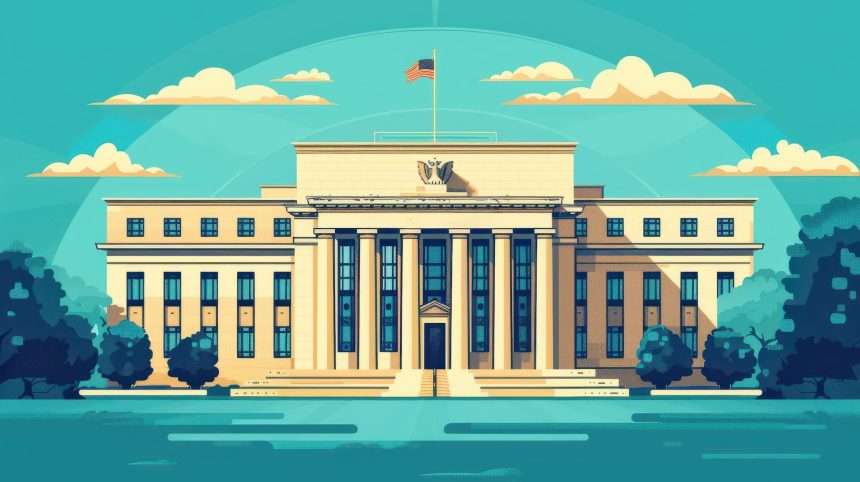Credit Sesame discusses the recession scare in mid-2024 and who is to blame.
It’s been a strong year for stocks, with the US market up about 18% so far in 2024. Still, it only takes a few bad days to set Wall Street panicking.
A disappointing employment report on the morning of August 2, 2024, triggered a 2-day sell-off in US stocks. Some global markets were hit even harder. Investors interpreted slow employment growth as a sign of an impending recession. Given the importance of US consumers to the global economy, the ripple effects resonated worldwide.
When something goes wrong, people naturally start to point fingers. In this case, the Federal Reserve was an obvious scapegoat, especially after the Fed has continued to frustrate investors by delaying its highly anticipated interest rate cuts.
As share prices plunged, the oft-repeated logic blamed high interest rates for creating a drag on the economy that now threatened to plunge it into a recession. The only solution was for the Fed to do something fast.
Some want the Fed to hit the panic button
To understand the link between a couple of bad days for the stock market and the Fed, it helps to think of it as a chain reaction. This way, you can trace that chain backward from the market decline to the Fed’s interest rate policy:
- The stock market reacted badly to a disappointing employment report
- A weak jobs market can be a sign of a worsening economy
- High interest rates discourage spending and investment and so act as a drag on the economy
- The Fed signaled late last year that it intended the equivalent of three 0.25% rate cuts this year, but it has since downsized those expectations to a single 0.25% rate cut and has not yet done anything.
The simple interpretation is that it’s all the Fed’s fault, and the Fed needs to rectify the situation with a rate cut. According to this mindset, cutting rates at the next Fed meeting in September 2024 wouldn’t be good enough. In the midst of the market turmoil, there were suggestions that the Fed should call an emergency meeting to cut rates immediately. In short, nervous investors want the Fed to hit the panic button.
There’s more to the Fed’s policy than a single employment report
The cause of the weak employment report–and the solution–are a little more complicated than panicked investors would like to believe.
First, it’s important to remember why the Fed raised interest rates in the first place. It did so to head off soaring inflation, which peaked at 9% in mid-2022. Since then, higher interest rates have largely succeeded in calming inflation. The latest year-over-year increase in the Consumer Price Index was just 3.0%.
However, fighting inflation is a bit like fighting a forest fire. Even when the flames seem to be extinguished, there can be hot spots that can flare up again. So, the Fed has been looking for sustained evidence that inflation is receding. Given the damage that high inflation can cause and the complexity of bringing it under control, the Fed is not going to reverse two-plus years of inflation-fighting monetary policy just because of a couple of bad days on Wall Street.
In addition, it’s important to recognize that the August 2 employment report wasn’t all that bad. The latest figure of 114,000 new jobs created in July was well below the monthly average of 215,000 for the prior 12 months but still represented a growing job market. That marked the 43rd straight month of employment growth.
Besides sustained job growth, the economy as a whole grew at a 2.8% annual rate in the second quarter, after adjustment for inflation. That was double the first quarter’s growth rate and marked two full years of uninterrupted growth. Clearly, the Fed’s rate policy hasn’t killed the economic expansion.
A rate cut would have a limited impact on the economy
None of the above should suggest that the economy doesn’t have problems. However, it’s doubtful that an emergency rate cut would solve those problems.
Supposedly, high interest rates have discouraged spending. However, credit card debt has been growing at an alarming rate. Credit Sesame’s analysis of data from the Federal Reserve Bank of New York’s Household Debt and Credit Report found that the amount of credit card debt outstanding has risen by 45% over the past three years. Despite higher interest rates, consumers are not deterred from borrowing.
Now, consider the potential impact of a rate cut. The Fed is expected to cut rates by 0.25% between now and the end of the year. The average interest rate charged on credit cards is currently 22.76%, so a 0.25% reduction isn’t going to do much to reduce the burden of payments on credit card debt.
A rate cut isn’t a cure-all for the economy. It could be argued that encouraging more borrowing is the last thing the economy needs at this point. A too-hasty rate cut could increase the risk of inflation flaring up again, which would be especially counterproductive.
Investors who are concerned about risk can adjust their portfolios instead of waiting for the Fed to solve the problem with a magical rate cut.
Similarly, individuals burdened by credit card debt could cut spending to reduce their borrowing rather than hoping for a rate cut. Working on your credit score to help secure a lower interest rate is also a good idea.
If you enjoyed, Is the Fed to blame for the mid-2024 recession scare? you may like,
Disclaimer: The article and information provided here is for informational purposes only and is not intended as a substitute for professional advice.
Read the full article here
















